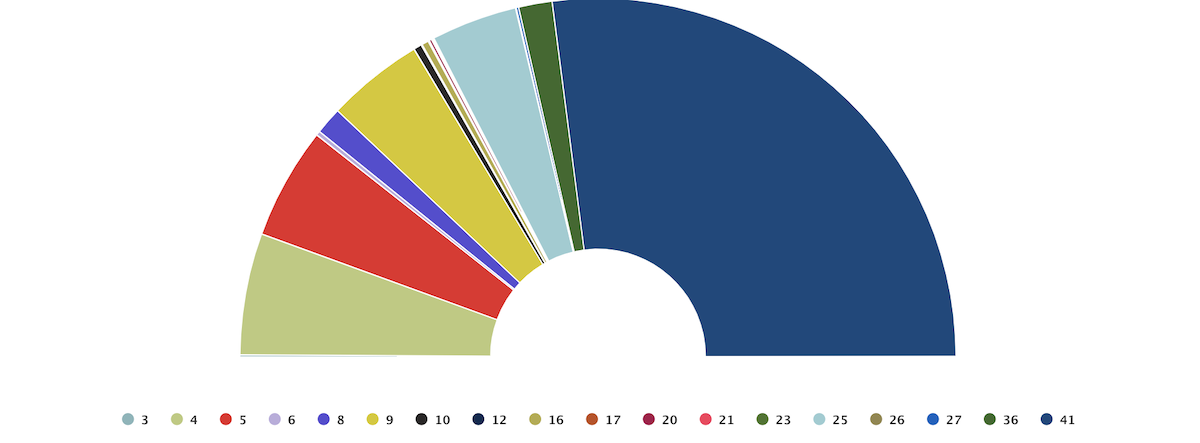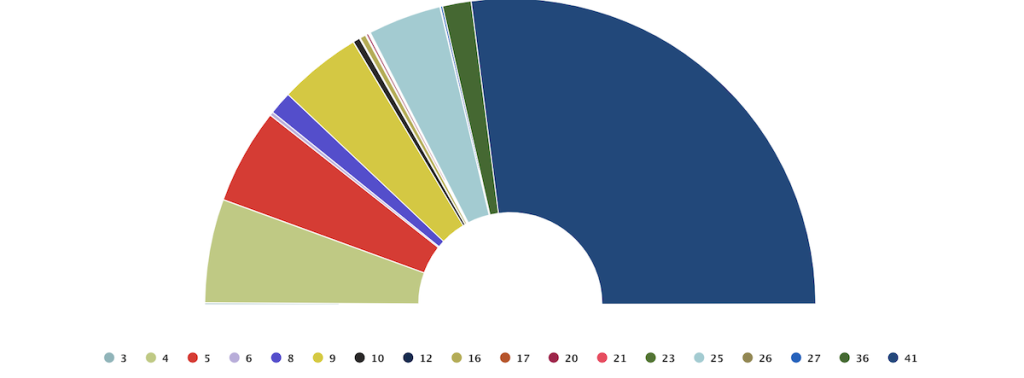
Elections in Georgia: who won, protests
On October 26, Georgia held elections for its 11th parliamentary assembly, which has 150 seats. By 11 a.m. on October 27, the Central Election Commission reported that, with 99.646% of ballots counted, the ruling “Georgian Dream” was winning with 54.234%.

Five more political entities from the opposition have made it into parliament:
- The “Coalition for Change,” which includes the “Akhali” party led by Nika Gvaramia and Nika Melia, as well as the parties “Girchi – More Freedom” and “Droa,” with 10.822% of the vote.
- The “Unity – National Movement” alliance, which includes the “United National Movement” (the former ruling party founded by ex-President Mikheil Saakashvili), the Strategy Agmashenebeli, and European Georgia, with 10.105%.
- The “Strong Georgia” alliance, which comprises the parties Lelo, Freedom Square, and Citizens – Aleko Elisashvili, with 8.758%.
- The party “For Georgia,” led by former Prime Minister Giorgi Gakharia, received 7.753%.
- “Girchi” obtained 3.004%.
Other parties did not surpass the 5% threshold.
The top three opposition groups have already declared that they consider the elections to be fraudulent, do not recognize the results, and are initiating acts of civil disobedience. The party of former Prime Minister Giorgi Gakharia also reported instances of fraud but stated that they are waiting for the final results.
The “Girchi” party has not yet made any statements regarding joining the protests.
Executive Director of Transparency International Georgia, Eka Gigauri, also announced the decision to reject the preliminary results from the Central Election Commission concerning the parliamentary elections. She mentioned that this decision is supported by many non-governmental organizations.
The observers’ coalition “We Vote” reported violations during the elections, including voter intimidation and bribery.
For the first time, the parliamentary elections were held using a fully proportional system, and approximately 90% of voters cast their ballots using electronic devices. According to the Central Election Commission, voting took place at 3,111 polling stations, including 67 located abroad. The total number of voters was 3,508,294, and 18 electoral entities participated in the elections.
Reuters: “Georgia’s most powerful man [leader of the ruling party, oligarch Bidzina Ivanishvili] won a parliamentary election on Saturday, according to early official results, a victory which opposition politicians refused to recognise, alleging “falsification“.
Observers, opposition members, and foreign diplomats had cast the election as a watershed moment that would decide if Georgia moves closer to the West or leans back towards Russia amid the war in Ukraine.”

